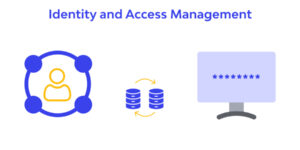
Database administrator positions are pretty popular and widespread in the world of IT these days, but what exactly do DBAs do, and what are they responsible for? In this post, we will discuss the general scope of the data administration position, along with the roles and job responsibilities they are frequently asked to undertake.
Are you ready to explore more?
Let’s get started…
A database administrator (DBA) has numerous roles and responsibilities to perform, like managing, securing, and maintaining the database management system (DBMS). So, before we get into the role and responsibilities of DBA (Database Administrator), it’s important to understand who a Data Administrator is. Take a look.
Who is a Data Administrator?
A database administrator, or DBA, is someone who is in charge of making sure a database runs smoothly. As a challenging role that requires focus, logic, and an enthusiastic personality that can cope under pressure, the job necessitates a variety of skills. DBAs must work within an organization to monitor, repair, and develop databases.
This job necessitates a high level of expertise from a single person or group of people. Most database administrators are trained to diagnose the system-wide database and repair any issues that arise to ensure that the data remains consistent and well-defined. Furthermore, they are in charge of implementing sound backup procedures for data recovery in emergencies and providing the necessary security protocols for the database management system (DBMS).
DATABASE ADMINISTRATOR ROLES AND RESPONSIBILITIES
1. Software Installation and Maintenance
A DBA is frequently involved in the initial installation and configuration of a new Oracle, SQL Server, or other databases. The system administrator configures the database server’s hardware and implements the operating system, after which the DBA installs and configures the database software. The DBA is in charge of ongoing maintenance, such as updates and patches.
In addition, if a new server is implemented, the DBA is in charge of transferring data from the existing system to the new platform.
2. Managing Data Integrity
DBAs primarily handle the overall integrity of a company’s database. They make sure that the Data integrity is carefully managed because it protects data from unauthorized use. DBAs manage data relationships to ensure data consistency.
3. Takes Care of Data Extraction, Transformation, and Loading
DBAs are responsible for Data extraction, transformation and loading, also known as (ETL), which refers to the efficient import of large amount of data extracted from multiple database management systems (DBMS) into a data warehouse environment. The external data is cleaned and transformed to fit the required format before being imported into a central repository.
Must Read Related Blog: Roles and Responsibilities for UX Designers
4. Monitoring Performance
Only implementing a database is not the task of the database administrator. Once the database is implemented, they are required to monitor databases for performance issues. If a system component slows down processing, the DBA may need to change the software configuration or add more hardware capacity. There are numerous monitoring tools available, and understanding what they need to track to improve the system is part of the DBA’s job.
5. Data Handling

Each company’s success today revolves around massive databases. Companies nowadays maintain massive databases containing unstructured data types such as images, documents, or sound and video files. Managing an extensive database (VLDB) may necessitate higher-level skills, as well as additional monitoring and tuning, which a DBA possesses.
Related: How To Become a Data Scientist
6. Create a Database Backup Plan
DBAs create backup and recovery plans and procedures as per the industry standards. Not only that, but DBAs make certain that all necessary steps are taken. DBAs are responsible for ensuring that everything is completed on time, in addition to taking the required precautions to keep data safe.
Also See: Important Database Administrator Interview Questions
7. Database Recovery
The DBA’s responsibility in the event of a server failure or other type of data loss is to restore lost data to the database management system (DBMS) using existing backups.
Different types of failures may necessitate different recovery strategies, and a DBA performs his duties while keeping the necessary requirements in mind. Furthermore, as technology advances, it becomes crucial for a DBA to backup databases to the cloud.
8. Database Security
One of the most critical responsibilities of a DBA is identifying and correcting any flaws in the database software. No system is entirely secure; however, DBAs mitigate risks by implementing best practices. A DBA must be able to identify potential flaws in the database software and the overall database management system (DBMS) of the company and take appropriate steps to mitigate risks.

9. Database Integrity
DBAs are primarily responsible for the overall integrity of a company’s database. This includes putting the database in place, keeping it safe from loss and corruption, making it easily accessible, ensuring it works properly, and constantly tweaking it for ease of use and maximum productivity. In addition, the database administrator is also in charge of training eligible employees on how to access and use the database so that they can perform their duties.
10. Database Accessibility
Setting up employee access is a critical component of database security. DBAs decide who has access and what kind of access they have. They create a subschema to control database accessibility.
They also determine which users will have access to the database and which users will use data. Without the permission of the DBA, no user has the authority to access the database.
11. Provides Support to Users
If a user requires assistance at any time, it is the DBA’s responsibility to assist him. The DBA provides complete support to users who are new to the database.
12. Troubleshooting
In the event of a problem, DBA’s job is to troubleshoot it immediately. Whether a DBA needs to quickly restore lost data or fix a problem to limit damage, a DBA must be able to quickly understand and respond to concerns when they occur.
Related Posts:
- What is DevOps and How It Works: Ultimate Overview and Guide
- Top Skills Required to Become a Salesforce Developer
Different types of DBAs
- System DBA:
The maestro of the hardware and software orchestra, system DBAs handle the installation, configuration, and maintenance of the entire database system. They are the go-to gurus for patching, backups, and disaster recovery, ensuring the platform’s uptime and stability.
- Database Architect:
These visionaries of data organization craft the blueprints for efficient and scalable databases. They analyze business requirements, translate them into logical and physical data models, and optimize the structure to handle the ever-growing data demands.
- Data Modeler:
The sculptors of data, data modelers transform business needs into tangible data structures. They define entities, attributes, relationships, and constraints, ensuring the database accurately reflects the real world and facilitates efficient data retrieval and manipulation.
- Application DBA:
The bridge between applications and databases, application DBAs specialize in supporting specific business applications. They fine-tune database performance for optimal application responsiveness, troubleshoot application-related issues, and ensure seamless data synchronization.
- Task-Oriented DBA:
These specialists focus on specific areas within the database realm, such as security, compliance, performance tuning, or data warehousing. They delve deep into their chosen domain, wielding their expertise to optimize specific aspects of the database system.
- Performance Analyst:
The detectives of database sluggishness, performance analysts diagnose and resolve performance bottlenecks. They monitor system metrics, analyze query execution plans, and implement optimization strategies to ensure the database runs at peak efficiency.
- Data Warehouse Administrator:
For organizations with data warehouse consulting, these architects of knowledge repositories are responsible for building, managing, and maintaining the data warehouse. They oversee data extraction, transformation, and loading processes, ensuring the warehouse is stocked with accurate and up-to-date information for business intelligence and analytics.
- Cloud DBA:
As the cloud revolutionizes data storage, cloud DBAs are the pioneers of this new frontier. They specialize in managing databases hosted in cloud platforms, ensuring security, scalability, and cost-effectiveness in the virtualized environment.
Qualifications
You can enter this profession with a degree in any stream; however, the following may be especially helpful:
- Computer science
- Computer software/computer systems engineering
- Information technology
- Mathematics
Many people take the MCDBA to become fully qualified DBAs. This is the Microsoft Certified Database Administrator course that will set you up for a successful career in IT. Candidates are taught the skills they will need for their job to accomplish it in a systematic manner. This course is constantly updated to ensure you receive the most up-to-date information that you can apply in a real-time situation.
Database administrators typically possess an advanced degree or comparable level of experience in either computer science or computer programming, be certified in database management, and have an extremely good working knowledge of the database with which they are working. Though a pre-entry postgraduate qualification is not required, it will likely improve your chances if your first degree is not in computing.
The ability to solve complex problems both independently and as part of a team usually determines how well a DBA can meet the position’s requirements.
Related Post: Benefits of Using Data Science in the Hospitality Industry
Skills
- A DBA should have the following abilities:
- Exceptional problem-solving and analytical abilities
- Good communication.
- Teamwork, and negotiation skills
- Good organizational skills
- Understanding of the major data manipulation languages as well as database design principles.
- The ability to work under pressure and to meet tight deadlines.
- Adaptability and flexibility
- A dedication to ongoing professional development
- The ability to establish and maintain positive working relationships with coworkers and customers
- Business awareness and comprehension of IT business requirements
- Ability to keep up with new technology developments
- Working knowledge of information legislation, such as the Data Protection Act
Salary
Salary levels differ depending on the industry and location. In the financial services and banking sectors and the investment and insurance sectors, rates are typically higher. In addition, the location where you apply for the DBA profile will have an impact on your overall salary. For example, salaries in countries such as India will be lower than the DBA salary in the United States.

- Graduate database administrators can expect to earn between $32,000 and $36,000 per year as a starting salary in the USA. In India, the starting salary for a graduate DBA is INR 3Laks per year.
- With some experience, you could earn $52,000 to $56,000 in the USA as a junior DBA. And in India, you can earn around 4.2 and 4.5 lakhs per year.
- Working in a senior position in the United States with significant experience could earn you a salary ranging from $75,000 to $98,000. As a senior DBA in an organization in India, your salary would range between 15 and 19 lakhs.
*The income figures are only intended to serve as a guide.
Aside from working in an organization, if you have significant experience, you can also work as a contractor and set your own rates.
RELATED: 10 Most Powerful Data Modeling Tools
Working hours
Working hours vary from one company to another and from one location to the next. Monday through Friday, DBAs typically work 40 to 45 hours per week. DBAs are frequently required to work overnights and on weekends, particularly when maintenance and development work is being performed. In addition, you may be required to be on call at times in order to respond to a critical problem.
Most of the time, the working environment for DBA is casual. They are frequently required to work from home or other remote locations. Because businesses rely on effective databases, there can be a lot of pressure to keep them running smoothly, especially if they’re accessible online. On occasion, extensive travel and extended working hours may be required.
Wrapping it up…
Hopefully, this article will help you understand the roles and responsibilities of DBA (Database Administrator) in-depth. The most exciting part of working as a DBA is that each day brings a new challenge that necessitates providing solutions with both immediate and long-term benefits. You will almost invariably find yourself at the heart of the organization for which you work. This is due to the fact that data flows are increasingly important in today’s business environment and the DBA’s role is to ensure that data is distributed smoothly and efficiently. As a result, those who choose to take on the role of DBA will find it extremely rewarding.
Furthermore, you will have numerous opportunities to work abroad. This means that a DBA profile can help you accomplish your dream of settling in a foreign country.
Wear a Mask, and Stay Safe!!






